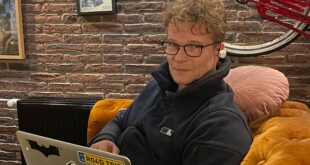Last night, Crowdsourcing Week had a discussion with Theo Priestley about technology and crowds and Nordic Startup Bits joined the #Crowdchat. Here is a recap.
What are your 3 predictions for a future when crowds and tech collide?
- The sourcing of innovation is going to become more open, as companies and government reach out to citizens to incubate ideas.
- Banking and financial services in general will completely change, people will look to people rather than institutions.
- Virtual & augment reality and how we shape the environment around us will be determined by studying crowds.
Phew, managed it all in 140 characters ! #crowdchat
— Theo Priestley (@ITredux) October 6, 2015
Which vertical will be disrupted the most? How?
Tough call, it’s all up for grabs frankly, right now the two areas that need it the most are banking and public sector. As always, retail, tech and FMCG are at the forefront of using crowd wisdom to enhance products and experiences. Even the auto industry. Nissan used crowd feedback to tweak the design the new Juke for example. So banking and public sector need to use the same techniques to engage with people, create experiences and be genuine!
#Banking + #govt lag behind #retail + #auto in harnessing #crowdsourcing for innovation, but those sectors need it most- @ITredux #crowdchat
— briana green (@gbriana) October 6, 2015
Regulations cannot keep up with technology? Where should government begin?
I presented on this last week, privacy laws for example 20 years ago no longer apply now. Government should work more closely with tech cos that are pushing the boundaries of what is possible within current legislation. And understand what is constraining them without compromising the consumer. But they are so far behind, it takes years of debate to agree a policy change. This has to change to make this work.
Do you see a solution for Europe’s war on Uber?
Yeah, let them win, because innovation will happen with or without their consent. Sure, methods are questionable and they flout laws, but working against rather than with is pointless and time consuming.
A4) The Uber model is disruptive and naturally incumbent services don’t like this. They need to disrupt themselves. #crowdchat
— Theo Priestley (@ITredux) October 6, 2015
Name 3 enterprises to watch for in the new economy and what’s notable about them?
- PwC is doing some interesting things in the UK around crowdsourcing of ideas and innovation from 18,000 employees
- Nissan as I’ve mentioned before take feedback very seriously, I expect this to ramp up with every car they design
- Big retail companies like Coke will continue to explore how to use crowd wisdom to keep their brand and products fresh
Can a productive internet and privacy coexist?
Short Answer: Yes
Long Answer: People need to understand they gave up privacy years ago.
The shift will come when consumers realize the value of their information and force changes to secure the data, and also allow them the rights to control it.
A6) The Customer Will Own Their Data. And Companies Will Rent It From Them. That’s the real evolution. #Crowdchat
— Theo Priestley (@ITredux) October 6, 2015
Economic forecasts are looking bleak globally. How can crowdsourcing help?
Again, it points to mindshare of ideas and shaping of the environment around us by consensus. If forecasts are that bleak, then policy makers and financiers aren’t doing their job. Perhaps they need to listen more and stop halting disruptive innovation that will accelerate growth, as in the Uber case.
2 things that will happen when the Next Billion gets online?
Facebook and Google will become unstoppable. More worried about Facebook than Google. The next billion won’t be using laptops to connect, it’ll all be mobile.
Facebook appear philanthropic but their goal is simple: data. And another billion users on the platform for example.
What’s worrying you about Facebook when the next billion get online?
Facebook appears philanthropic but their goal is simple: data. And another billion users on the platform for example.
@gbriana http://t.co/8sR7otQ5Q7 #crowdchat
— Theo Priestley (@ITredux) October 6, 2015
Can you share few points on development/use responsible technology?
Always keep the goal focused on the consumer benefit at scale, not revenue or profit.
Always ask WHY are you developing this, if its not a real benefit, then its not a responsible tech.
Theo Priestly is also to be found at the CSWEurope 2015 to moderate a panel on Day 3: Evolve Europe: Smart Cities & Mobility, October 21.
 Nordic Startup News Early Stage Startup News From The Nordics
Nordic Startup News Early Stage Startup News From The Nordics


